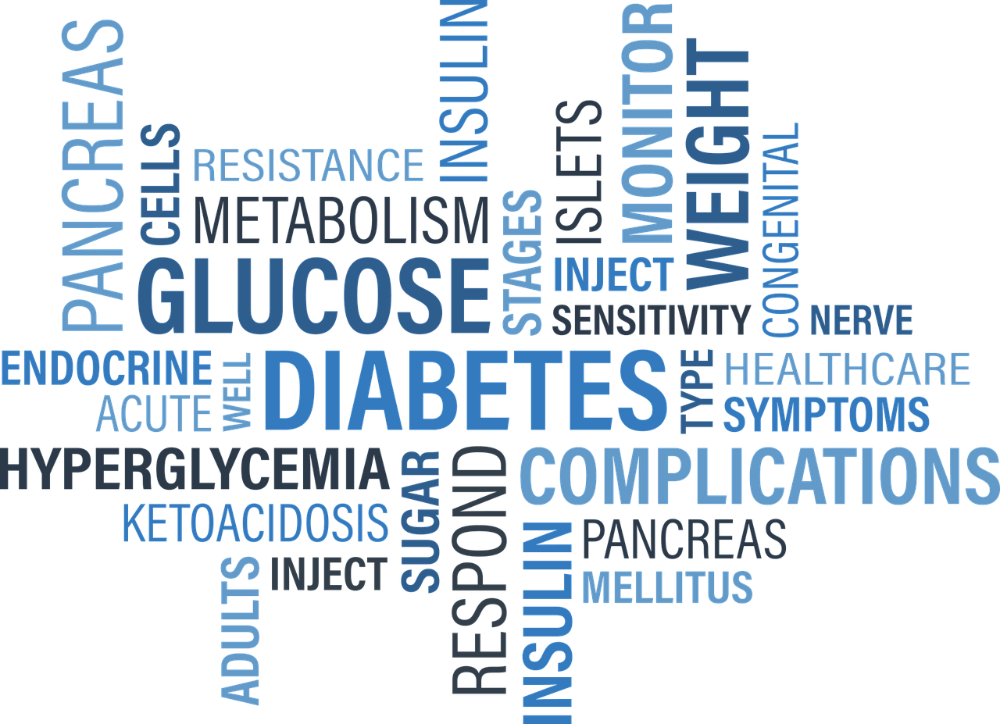
Some studies show that having diabetes doubles your risk of developing depression. If diabetes-related health problems emerge, your risk for depression can increase even further. It remains unclear exactly why this is. Some researchers suggest that this could be due to diabetes' metabolic effect on brain function as well as the toll day-to-day management can take. With depression comes inactivity, fatigue, susceptibility to illness, cravings for easy burning calories like carbohydrates and sugars, a distancing of relationships, difficulty in the workplace or in school, and an overall sense of doom and defeat. It is easy to understand why this topic deserves a closer look.
One of the contributing factors of depression is the person's physical state. Studies show that high blood sugar levels cause biochemical changes within the brain that can lead to depression. Unfortunately, many doctors miss the connection between depression and diabetes, and focus treatment on the obvious physical aspects of the disease.
Most physicians consider prescription medications to be the first-line treatment for depression. Some of the most common side effects of antidepressant medications are nausea, increased appetite and weight gain, loss of sexual desire, fatigue and drowsiness, insomnia, dry mouth, blurred vision, and constipation. Each of these things can impact one’s ability to manage their blood sugar consistently. So, it begins to make sense to start exploring other ways of treating depression in diabetics.
I am not opposed to using medications for depression, indeed many people benefit from using them. But it is important to weigh the benefits and cost of treatments. There is no “magic bullet” when it comes to treating depression. Antidepressant medications mask and cover up symptoms, they do not address the underlying cause of the depression.
This means that depression continues, and that users of the medications will likely need to increase their dosage in order to feel the same effects as they build tolerance to the medications. When we are able to treat the causes of depression, there are fewer symptoms to manage and less need for medication.
Today, medical doctors are recognizing the benefits of hypnosis as a treatment option, so that you can have the best of both worlds, by adding hypnosis to their diabetic treatment plan and helping their patients to have more control.
The core of diabetic treatment focuses on preventing and managing complications, and not on resolving the factors that contribute to those complications. Yes, patients are instructed to lose weight and eat better, but they’re often sent home without the tools they need to overcome lifelong habits and make these changes in their life. Simply knowing that you need to make changes is often not enough to actually create those changes and have them last. This cycle adds more stress and frustration, which can amplify depression, and certainly affects blood sugar.
The Role of Hypnosis
Hypnosis may be one of the last things you’d think to add to your diabetes management plan, but you’d be missing out on some pretty significant benefits. As most people with diabetes already know, blood sugar is impacted by just about everything, including emotions, sleep patterns, stress, illness, physical activity, and eating habits. All these aspects of our lives are habit-driven, and hypnosis is one of the most efficient and effective tools for changing habits.
In addition to depression, diabetes can also bring about other problems such as fatigue, mood swings, ulcers, and more. Hypnosis can help you bring those things under control.
Hypnosis has been recognized by the medical community for well over sixty years. In 1958, the American Medical Association and the American Dental Association made resolutions recognizing hypnosis as an accepted form of treatment in medicine and dentistry. This was three years after the British Medical Association passed a formal resolution approving hypnosis as a valid therapeutic technique for treating neuroses and for relieving pain in surgery and childbirth.
Hypnosis is not meant to replace standard medical treatment. Your mind and body are complicated and have many different moving parts with many different needs. The best and most beneficial treatment involves combining different methods. In the same way that combining diet and exercise is more effective when losing weight, adding hypnosis to your diabetic treatment plan can make all of your interventions more effective.
In the treatment of depression, hypnotic techniques can be used to help clients react differently to external and internal triggers, changing the wiring in the brain and allowing the brain chemistry to readjust. Hypnotic regression can allow a client to process and release past traumas from a place of safety and control, without having to relive the negative experiences. Other hypnosis techniques can be used to eliminate stress and anxiety that may be contributing to the depression, as well as recover and build self-esteem and confidence.∎
Links to Research:
https://www.ncbi.nlm.nih.gov/pmc/articles/PMC5738869/
https://www.ncbi.nlm.nih.gov/pubmed/18058487
https://www.healthline.com/health/type-2-diabetes/depression#research
Karen Gray is a Certified Hypnotist, a Certified Hypnosis Instructor, a Registered Nurse, and the Director of Green Mountain Hypnosis. For more information on how you can use hypnosis to change your life, contact Karen at karengray@greenmountainhypnosis.com, or (802) 566-0464.
Use this link to get a free 15 minute hypnosis audio for stress relief.
http://www.greenmountainhypnosis.com/StressFreeAudio.html